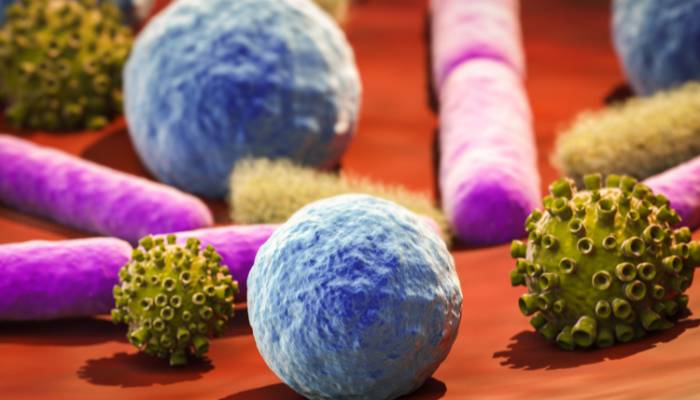
Bacteria mean single-celled organisms that you can see with the help of a microscope. Then, not all bacteria are detrimental to human health; some living in the body are beneficial. For example, Lactobacillus acidophilus found in the intestines is harmless and helps in digestion. The bacteria also get rid of disease-producing organisms as well as provide essential nutrients.
The omnipresence of antibiotics for resisting bacterial infection is a public health concern. According to an article published in the Huffington Post, abuse of antibacterial and antibiotics is concerning. So, in this article, we will delve deeper into bacteria and viruses.
Disease-producing bacteria
Though some bacteria are helpful for your health, that doesn’t mean they are not damaging to your health. Did you know that several disease-producing bacteria create toxins? These are powerful chemicals that can harm cells, making you sick. Other forms of bacteria can intrude and harm human tissues directly. A few infections resulting from bacteria are tuberculosis, strep throat, and urinary tract infection.
Viruses
When it comes to viruses, they are much tinier compared to cells. To be candid, viruses are just like capsules containing genetic material. Viruses intrude the cell in our bodies to reproduce, which is taking over the machinery making cells function. The host cells are frequently damaged during this method.
As far as viruses are concerned, they result in numerous diseases like Ebola, the common cold, AIDS, influenza, genital herpes, chicken pox, measles, shingles, and COVID-19. However, antibiotics developed for bacteria have no significant impact on viruses. You can learn more about virus and bacteria history on platforms such as MyBioSource.com.
Infection and disease
Infection and ailment are two different things. The former occurs when viruses, bacteria, as well as other microbes causing illness invade the body and start to grow. The disease starts occurring when your body cells are harmed due to infection. Then, the symptoms and signs of diseases start manifesting causing discomfort.
Eliminating germs, viruses, and infections
Did you know how you can stay away from ailments? The simple answer is stopping infections. It’s possible to avoid numerous infections and the spreading of them through easy methods. These include no contact with sick patients, covering your face when someone is coughing and sneezing, not touching your face, staying home if you are unwell, sanitizing all surfaces touched frequently, and not eating contaminated water and food.
Taking vaccines
If you are vaccinated, it’s the best protection for specific ailments. When medical researchers learn what causes diseases, the number of ailments could be stopped by taking vaccines. Some of these shots are given when you were a child. However, adults will require vaccination to avert some ailments like influenza, tetanus, and corona.
Medications
Medications provide, at least some, short-term immunity from particular germs and viruses. For instance, an anti-parasite medicine will protect you from being infected with a disease like malaria if you hail from a high-risk zone.
Conclusion
You will need to seek immediate medical attention if the disease-causing symptoms are lasting or recurring. Your doctor will prescribe medications to fight bacteria and viruses.

Lifebing is driven by an unrelenting passion for promoting health and well-being, our team is wholly committed to curating exceptional content and immersive experiences.
